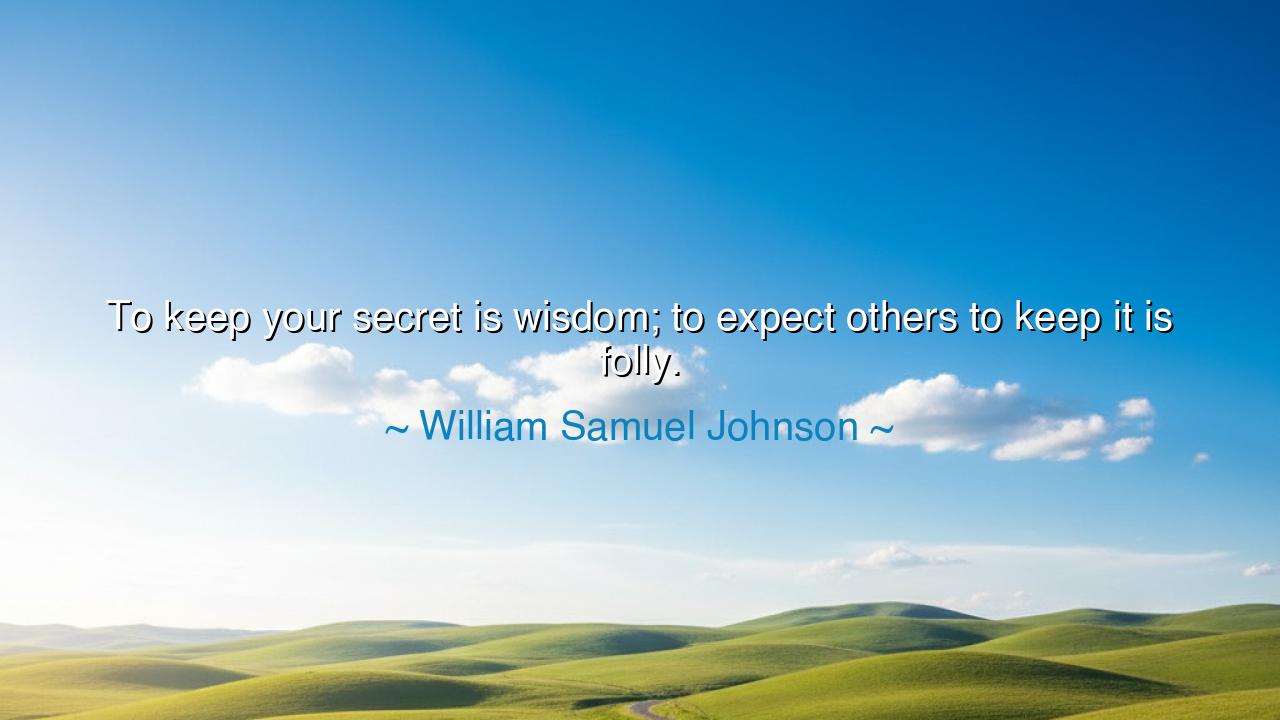
To keep your secret is wisdom; to expect others to keep it is






Hearken, O children of the ages, to the timeless counsel of William Samuel Johnson, who unveils the subtle art of prudence and discretion. He teaches that to guard one’s own secret is the mark of true wisdom, for the mind that holds knowledge in careful silence protects both itself and the fragile threads of trust woven through life. Yet to place hope in the silence of others, to expect that they will keep what is entrusted to them, is folly, for the hearts of men are easily swayed, and even well-intentioned souls may falter.
Johnson reminds us that secrecy is a sacred responsibility, a power that resides within the self. To guard a secret is to exercise judgment, restraint, and foresight. The act of preservation is not born from fear alone, but from the understanding that knowledge, once released, cannot always be reclaimed, and that the consequences of disclosure may ripple far beyond one’s control. True wisdom is the mastery of such forces, balancing discretion with integrity.
Consider the life of George Washington, who, during the trials of war, entrusted only a select few with the most vital plans and counsels of battle. He understood that to rely too heavily on the discretion of others was perilous, and that the preservation of critical knowledge lay first and foremost in his own vigilance. In this careful stewardship, he exemplified Johnson’s teaching: to protect the secret is to wield power with prudence, while expecting others to do so is uncertain and fraught with risk.
Yet this lesson extends beyond the affairs of state and war. In every community, friendship, and household, the preservation of confidences is a measure of one’s character. The wise recognize that expecting others to maintain silence is a hope easily betrayed, while self-mastery ensures that knowledge remains under the guardianship of reason and discretion. It is the deliberate choice of restraint that distinguishes the prudent from the naïve.
O children of the future, carry this teaching within your hearts: keep your secrets as treasures of the mind, and entrust them sparingly. Place no folly in relying on the vigilance of others, but cultivate within yourself the discipline to guard knowledge wisely. In this, the soul becomes steadfast, the mind disciplined, and the consequences of human weakness are mitigated by the power of prudent self-control.
If you wish, I can also craft a visual, ancient scroll-style presentation of this passage to capture the heroic, timeless, and deeply reflective essence of Johnson’s teaching on secrecy, wisdom, and human fallibility.






AAdministratorAdministrator
Welcome, honored guests. Please leave a comment, we will respond soon